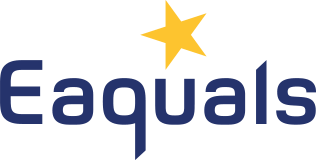CALL FOR PAPERS – Constructions of Identity: new world – new ideas
We would like to invite you to the international conference Constructions of Identity: new world – new ideas on October 27-28, 2017, in Cluj-Napoca, Romania. This event is organized every two years by the English Department of Babes-Bolyai University. In its 20-year long history this conference has contributed significantly to research in literature and linguistics under its overarching main theme of how language, literature and philology research itself shape people’s perception of the world, of otherness, and ultimately, of themselves. This year we welcome contributions that are not shy of experimenting with new and fresh perspectives, as we hope that our workshops will prove successful in providing the opportunity for lively exchange of new ideas and building future research partnerships. A selection of peer-reviewed papers will be published in an ISSN Conference Proceedings volume (in pdf format) at Presa Universitară Clujeană publishing house which has national CNCSIS accreditation.
Keynote speakers:
Dame Marina Warner
Birkbeck College, University of London
All Souls College, University of Oxford
Codrin Liviu Cuţitaru
Al.I. Cuza Univeristy of Iaşi
Adina Dragomirescu
University of Bucharest (Faculty of Letters)
“Iorgu Iordan – Al. Rosetti” Institute of Linguistics
For further details, please check the conference website confid9.wordpress.com
Conference sessions:
1. Gendered Identities in Anglophone Literatures
This workshop will focus on the intersection between gender and identity in a variety of contexts where English is the writers’ favourite linguistic medium. Participants are invited to propose papers on the tradition of women’s writing, masculinity and its literary expression, the LGBT literary discourses in Anglophone cultures of all times. Experienced or emerging scholars working on any aspect related to these topics are invited to attend. Papers dealing with both theoretical and methodological issues, as well as case studies from any historical period and any Anglophone culture are welcome.
2. Otherness and Identity in Victorian Literature
The Victorian Age was basically a period of straightforward representation, of unmarked discourse where, at least in the case of the novel, plots and characters were introduced to the reader with an apparent neutral attitude. However, in the case of many novelists and predominantly in the case of poets, the image conveyed to the readers was a literary product reshaped and often hidden between the lines, and, as such, it went beyond what was literally implied and acceptably packed to go with the standards of the time. It is the aim of this workshop to examine how such double meanings were constructed and how the reader was often involved in a process of discovery and reconstruction of the self and the other, of the here and beyond when assimilating, appropriating and impersonating a text of Victorian provenance.
3. The Syntax- Semantics- Pragmatics Interface
This workshop assumes the theoretical perspective on natural language phenomena that treat syntax, semantics and pragmatics as separate computational models whose interactions are mediated by interface mechanisms. We invite contributions that explore linguistic phenomena whose understanding arises from such points of cross-modular contact and interplay, as well as phenomena that are shaped by a conjunction of separate modules effects. Our invitation is not restricted to generativists alone, who traditionally embrace this perspective. On the contrary, we look forward to bringing together researches based on various frameworks in the hope of sparking new insights and providing an inspirational experience to all participants.
4. Internet Linguistics
In the relentless swirl of today’s new media world, language varieties evolve and users’ creativity is prodded on by the multimodality of the online environment (text, images, videos). Hence, both new literacies and corresponding updated, accurate descriptions are needed. Internet Linguistics, a branch of linguistics introduced by the English linguist David Crystal, investigates the twofold needs prompted by the digitization of the contemporary world. It covers the panachronic (diachronic and synchronic) analysis of language in all areas of Internet activity, focusing on the digital communication through the Internet and other New Media. Internet Linguistics encompasses four perspectives: Sociolinguistics, Education, Stylistics, and Applied Internet Linguistics.
Possible investigation topics:
Online identity construction in various online spaces
Online representation of languages and linguistic versatility (new varieties of language)
Language creativity of Netizens
Digital Literacies
The blogosphere, the vlogosphere, online social networks
Digital communication
Stylistic features of online spaces
Online corpus collection
5. Language Contact Phenomena
The multilingual context we live in leads to constant interaction between languages. As a result, there are various language contact phenomena that have become common practice among speakers and that are constantly shaping the individual’s language use and identity. This section of the conference aims at bringing together scholars so as to share their insights on topics related to micro-sociolinguistics (borrowing, code-switching, translanguaging, polylingual languaging, metrolingualism, translingual practices), macro-sociolinguistics (language shift, language maintenance), and how these phenomena influence the speakers’ linguistic practices and identity.
6. CEFR in Language Teaching and Assessment
We invite contributions that describe and explain the effects of the Common European Framework for Languages (CEFR) on language teaching and assessment, with focus on changes in procedures and design of curriculum, lessons, tests, tasks and items, as well as building and maintaining motivation. Ultimately, the main interest is to reveal the benefits or shortcomings of the CEFR scales and descriptors in this respect, as well as how CEFR has changed the understanding of what it means to learn or use a foreign language for both language teaching/assessment professionals and students/ language certificate candidates.



